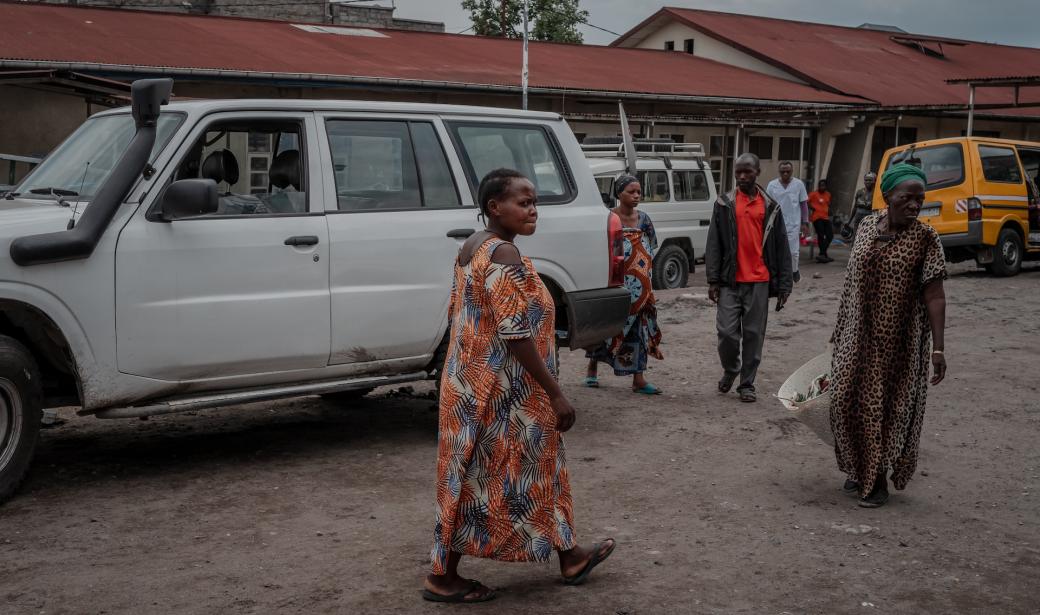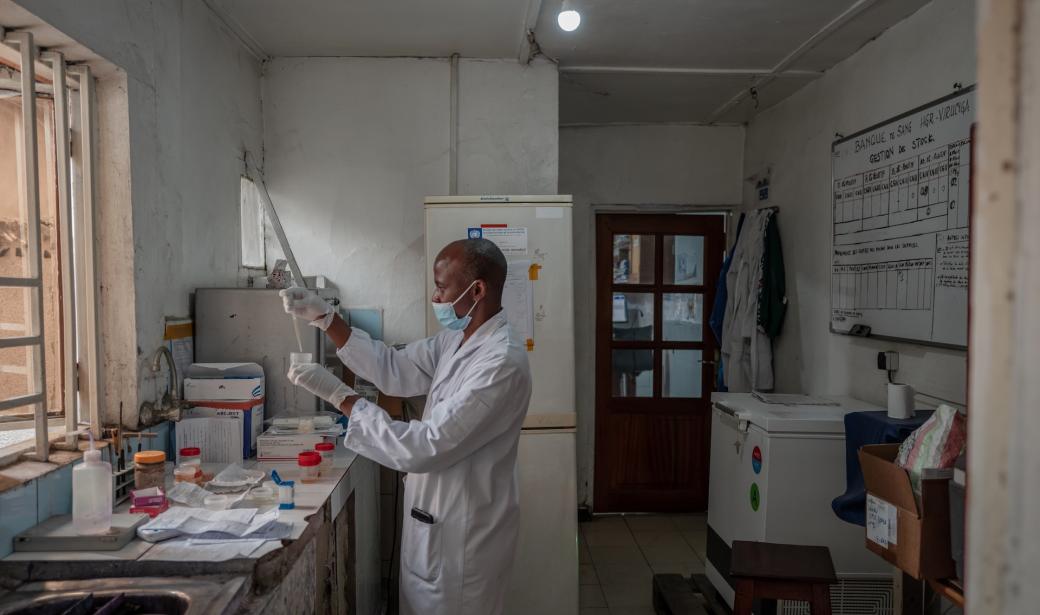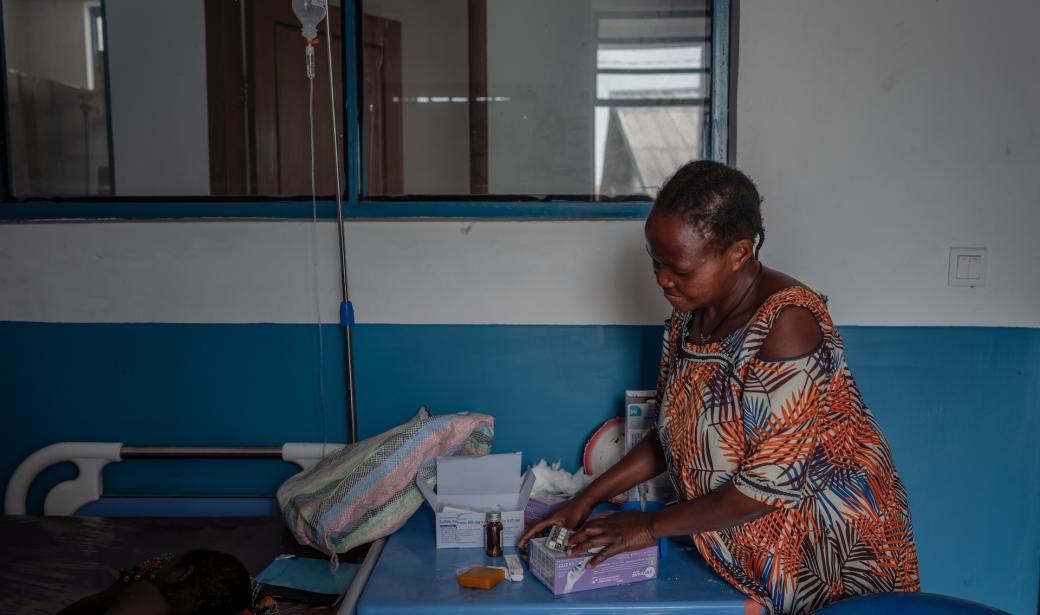Goma – Health authorities in the Democratic Republic of Congo are intensifying efforts to curb the mpox outbreak in which more than 8600 cases have been reported since the start of 2024 as of 6 November. A range of control measures are being implemented, with support from World Health Organization (WHO) and partners, to halt the spread of the virus. In North Kivu, one of the most affected provinces, efforts including case detection, isolation and treatment have been reinforced. Three-year-old Vainqueur was treated at a WHO-supported treatment centre in Goma, the provincial capital. Along with the other response measures, clinical care is helping to save lives and protect communities and families from the virus.
“At first, I thought it was a malaria attack, but then pimples appeared all over his body,” says Kanyere.
Treatment is one of the key pillars of the response to this epidemic. At the Virunga General Referral Hospital, as in all mpox treatment centres, case management follows a precise protocol.
“When a patient arrives at the hospital entrance, they are directed to the triage unit. If they have a rash, they are isolated in a room where they are consulted and a sample is taken by the laboratory technician,” explains Danny Mukawa, the nurse in charge of emergencies and isolation at Virunga Hospital. “We then draw up a list of the people with whom the patient has been in contact and place the patient under treatment.”
“Frontline workers play an essential role in strengthening the response to this disease. By equipping them with the necessary knowledge and tools, we can better protect communities and guarantee quality care,” says Dr Richard Fotsing, the WHO’s focal point for infectious risk management in the Democratic Republic of the Congo.
“With this triage and isolation approach, and treatment with antibiotics and supportive care, all the mpox patients admitted to this hospital have regained their health,” says Mukawa. “No staff have been infected.”
“When he arrived, the child’s temperature was between 38 and 39 degrees Celsius, and he was suffering from intense itching. When we started the antibiotic treatment, his condition began to improve,” recalls Mukawa, the nurse in charge of emergencies and isolation at Virunga hospital.
“I'm delighted that little Vainqueur has recovered. When he arrived, he couldn't walk or eat. He's living up to his name. He's called Vainqueur, and he's won,” says a delighted Mukawa.
Communications Officer
WHO DRC
Tel : +243 81 715 1697
Office : +47 241 39 027
Email: kabambie [at] who.int (kabambie[at]who[dot]int)
Communications and marketing officer
Tel: + 242 06 520 65 65 (WhatsApp)
Email: boakyeagyemangc [at] who.int (boakyeagyemangc[at]who[dot]int)






